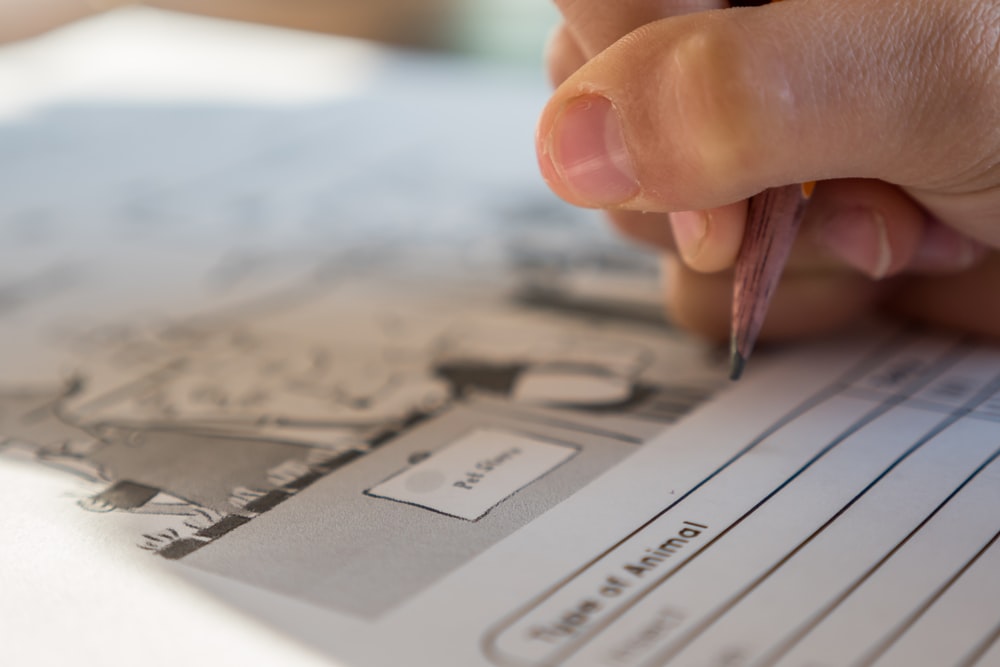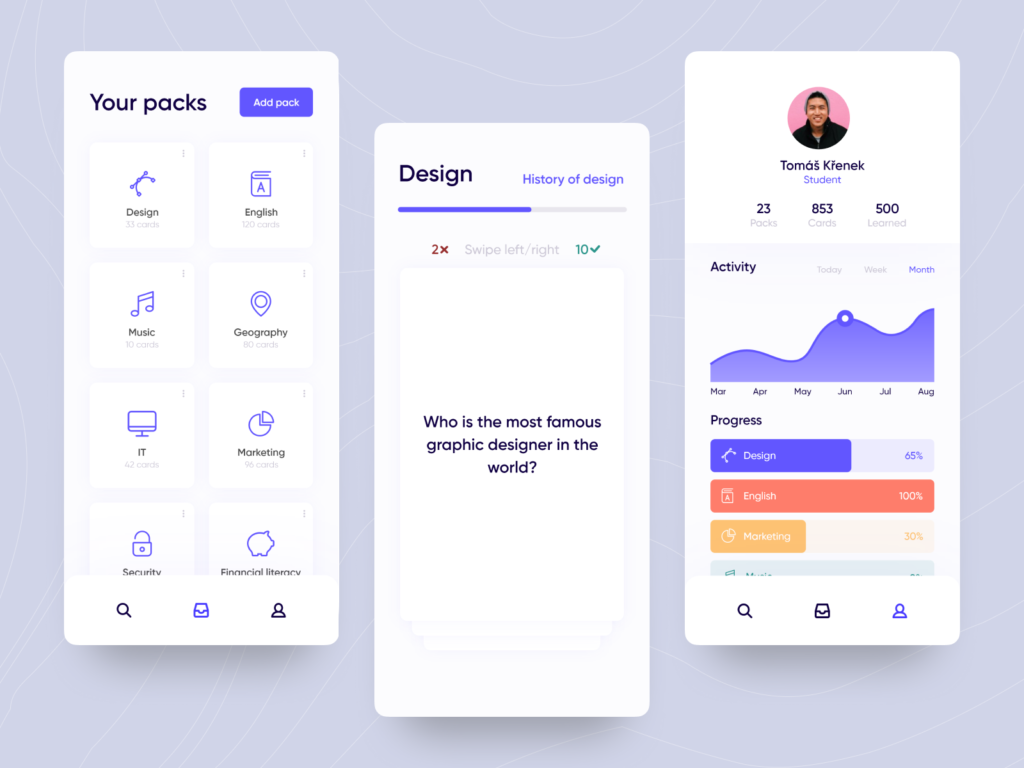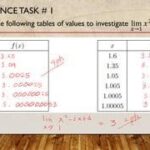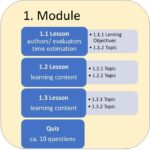Many of us find it hard and frustrating to memorize things like lists or dates. Consequently, a large number of learners think that they just don’t have a healthy brain. Fortunately, we can utilize an outstanding learning method that can help us train and develop our memorizing skills.
The core principles behind this learning method includes active recall testing and spaced learning.
Firstly, let’s delve into the first principle, so-called active recall testing:

This concept means that the learners will be asked questions while trying to memorize the new information. By doing this, learners can remember the content longer than passive study where we only read, watch or listen to something without actually engaging or thinking about it seriously. It is thought that when learners study by pausing to absorb the information, it is far more effective than the rote memorization method.
The explanation for this belief is:
- The memory will be strengthened if learners continue recalling what you learn; therefore, allowing you to memorize it longer.
- The moment you can’t answer the question; you can look back the materials and learn it once again
It is likely that we have already experienced active recall testing during our school years although we don’t actually notice it. Remember when our teachers give us a number of comprehension questions to do after the lesson, or give us a quick-test check, it is the form of checking whether the students can understand the materials or not. Through testing your knowledge, the teachers are encouraging you to memorize the content longer and deeper.
There are ways to apply active recall testing into our own studies, which is to create flashcards. Traditionally, we use paper flashcards to write down a question on one side, and the other for the answer. You will not turn the card over until you can remember exactly the correct answer. This way helps learners to absorb the knowledge better than just passively watching or listening.
However, one important factor to keep in mind is that we have to use it, practice it and apply it into real life, or else we will definitely forget it sooner or later.
Actually, our brain will operate in a way that it eradicates old and useless information. As a result, it is most likely that we will not be able to recall what you have eaten on Monday two weeks ago since this is considered to be not valuable information. In contrast, if you went to a fancy hotel and spent another two week telling anybody how wonderful your stay was, there are chances that you can still remember it vividly and in a much more detailed way.
Surprisingly, this practice is applicable to almost everything you need to learn. To illustrate, when you spend five hours learning all scientific jargon to deal with your upcoming exam in advance for about two weeks, and then you don’t take time to go over it again before the exam. Probably, you will not be able to remember 90% of the knowledge. According to some statistics, there is evidence that you do not even remember about half of them within 48 hours. Unfortunately, it is quite disappointing indeed when you have to scramble a lot of information.
However, depressing as it seems to be, the solution is not that complicated. You just need to take time to review over and over again in an appropriate way. In order not to forget so soon, just remember to review newly- memorized information.
Still, it only has one disadvantage that we can’t ignore when using paper flashcards. That is to say, if we use paper ones, we can easily flick through the paper under the circumstances that we have less than 30 of them to learn. The question lies with the larger number of flashcards, say 200 or 2000. This is too cumbersome to carry and implement.
Secondly, it is spaced repetition that plays a significant role in explaining how this software can help us that much.

This technique was discovered and reported by a German psychologist Hermann Ebbinghaus in 1885. He believed that if we review things over a repeated period of time, we can remember them more longer and efficiently without having to learn several times in just one part. In the 1930s onwards, a large number of proposals for applying the spacing method into improving learning performance came into effect and so called spaced repetition up until now.
To continue the utilization of that practice, we now have commercially computerized flashcard software, which can not only help us to keep track of the learning time but also adjust itself accordingly based on the users’ performance.
The way it works is that whenever you learn on the system, the program can tell how good your performance is if you can remember well. In contrast, if you forget the whole part or make frequent mistakes, it will use this as a diagnosis to design the utmost learning time for you to review. In fact, your memory is reinforced every time you learn it and successfully remember it, so you may see the review intervals are extended longer and longer after the first time you saw it. It is undoubtedly a revolution for learners around the globe, as it can facilitate the memorizing process to a large extent with only limited efforts given.
Last but not least, with spaced repetition and active recall testing, you can learn anything without worrying about forgetting any time soon. However, to make the process easier, the writer of this post highly recommended Anki, which combines both of the above-mentioned practices. Anki is one of the most popular software that can facilitate our remembering process. Although it has been around for many years, it is still obscure for most learners. Therefore, this post will help you get an insight into how Anki can help you become a better language learner. It is believed to be more effective than the traditional learning method because of the fact that it can reduce your time spent on learning and at the same time increase the quantity of knowledge that you can remember.

Anki is extremely helpful to those who want to memorize things in either their work or their study. There are an immense amount of things that can support your memorizing ability when using this software such as images, audio, videos and scientific markup.
With Anki, we can:

- Learn a new language by yourself
- Review for your specialized knowledge: medical or law
- Learn lists and recognize faces at ease
- Learn about geography
- Memorize long poems
- Learn how to play guitar
To sum it up, with the correct learning methods and the help of Anki, learners will no longer struggle with hard-to-digest materials.






![Erratum for “An inverse theorem for the Gowers U^s+1[N]-norm”](https://azmath.info/wp-content/uploads/2024/07/2211-erratum-for-an-inverse-theorem-for-the-gowers-us1n-norm-150x150.jpg)

